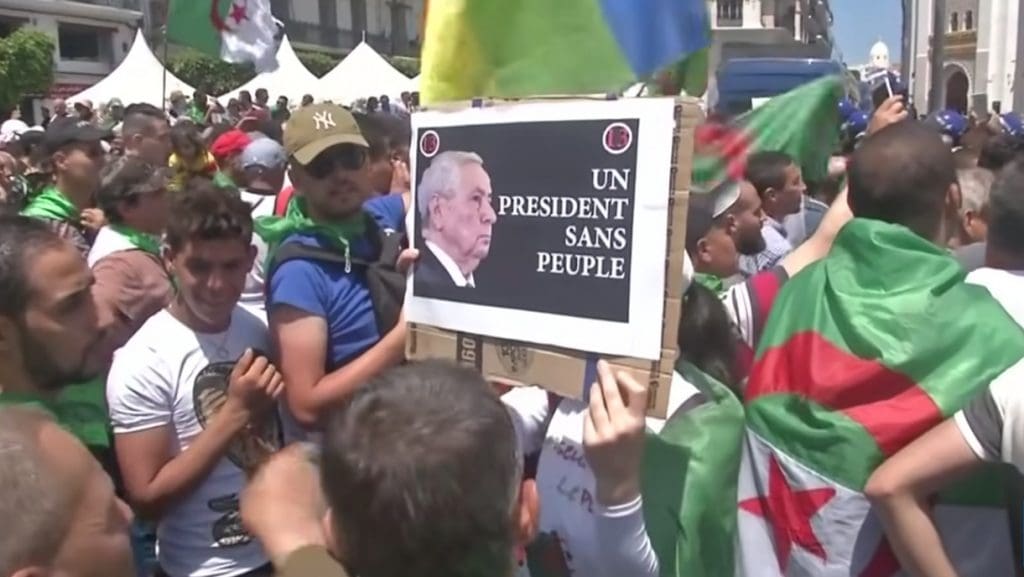Days to the start of campaigning ahead of the December 12 presidential election in Algeria, the five candidates are all former relatives or direct collaborators of retiring President Abdelaziz Bouteflika.
But their individual profiles suggest that none of them embodies the end of the “system” demanded by the Hirak demonstrators, according to Kader Abdelrahim, a researcher at the Institute of International and Strategic Relations (IRIS) and an expert on the Maghreb and Islamism interviewed by APA.
Last Saturday, the Independent National Electoral Authority (ANIE) finally named Ali Benflis (75), Abdelmadjid Tebboune (73), Azzedine Mihoubi (60), Abdelkader Bengrina (57) and Abdelaziz Belaïd (56) from 22 candidates selected from the voter sponsorship system.
These personalities are not unknown quantities in Algerian politics. They are more or less responsible for Bouteflika’s nearly 20-year stay in power, before he was forced to stand down last April.
Bouteflika has been in a wheelchair, weakened in recent years by a stroke. His fifth bid for the presidency which was backed by his close collaborators finally met resistance from the Algerian people, through weekly peaceful demonstrations.
The profiles of the successful candidates do not seem to meet the aspirations of the demonstrators who are demanding the departure of the old guards of the former regime and the renewal of the political class.
Election without favourites
Indeed Benflis and Tebboune are two former Prime Ministers, even if the former presented himself for fifteen years as Bouteflika’s main opponent. The latter is seen as an independent candidate.
Azzedine Mihoubi was Minister of Culture until March but was not a colleague in Abdelkader Bengrina’s government when he was in charge of the Tourism portfolio (1997-1999).
The latter’s candidacy is supported by the Islamist coalition, one of whose members was elected in September as President of the National People’s Congress.
Finally, Abdelaziz Belaïd was not a member of a Bouteflika government, but as the youngest candidate he is nevertheless the leader of an unrepresentative party – the El Moustakbel Front – which had to back the action of the erstwhile government.

But who among these five would embody the change required by the protest movement?
IRIS Researcher Kader Abdelrahim is categorical: “None of them! It is very clear…”
“The only candidate about whom I should perhaps qualify my answer is Ali Benflis. He was once Prime Minister and twice a candidate in the presidential election. He totally distanced himself from President Bouteflika. He is the only one who could possibly have played a role in the demonstrations that we have seen for almost nine months in Algeria” he opined.
“But as soon as he applied, and then he was heckled in the suburbs of Algiers last Saturday, it is still a very bad omen,” said Abdelrahim, author of the book “Géopolitique de l’Etat islamique” issued last Monday in the Eyrolles publishing house.
However, he stressed that the candidates leave with equal chances given the situation which shows “a more or less equitable competition” between them.
Moreover, they do not “represent a danger for the regime” which will adapt “very well” to who emerges as the country’s next leader.
This situation, where we are witnessing a semblance of divorce between politicians and the population, is not only Algerian or Arab, according to the researcher, who is also a lecturer at SciencesPo in Paris.
“It even crosses the African continent in the light of demonstrations throughout the Arab world (Lebanon, Yemen,)” he added.
This is the consequence of the “profound rejection of political dispensation by citizens who believe that it is necessary to put an end to the corruption that has become endemic and to the nature of the political regimes that have been established since independence and have demonstrated their incompetence and inconsistency,” Kader Abdelrahim observed.
ODL/Dng/lb/as/APA


